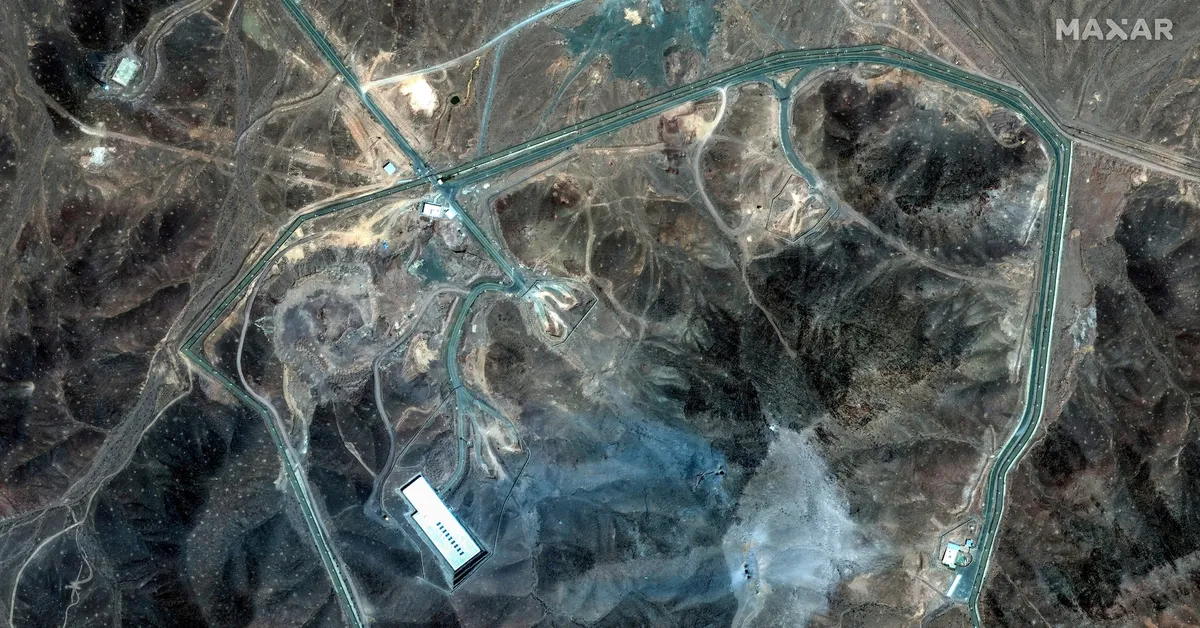
On June 23, 2023, tensions escalated dramatically as Iran and Israel exchanged air and missile strikes following a significant military action by the United States against Iranian nuclear sites. The U.S. attack, which President Donald Trump characterized as monumental, has raised concerns about the potential for further retaliatory actions from Tehran. The international community is closely monitoring the situation as calls for diplomacy and restraint surface.
The recent U.S. military action marks the largest offensive against Iran since the 1979 Islamic Revolution. The strikes specifically targeted the Fordow nuclear plant, a subterranean facility critical to Iran's nuclear enrichment efforts. Initial assessments from commercial satellite imagery indicate that the U.S. attack severely damaged or destroyed essential infrastructure at the site. However, the exact status of the facility remains unverified by experts.
In a statement on his social media platform, Trump claimed, “Monumental Damage was done to all Nuclear sites in Iran,” adding that the most significant destruction occurred deep underground. He urged Iran to avoid retaliation and suggested that peace should be prioritized to prevent even greater U.S. military responses in the future.
The U.S. military deployed a total of 75 precision-guided munitions, including bunker-buster bombs and Tomahawk missiles, aimed at three Iranian nuclear sites. General Dan Caine, the Chairman of the Joint Chiefs of Staff, provided details about the operation during a press briefing. Meanwhile, the International Atomic Energy Agency (IAEA) reported no significant increases in radiation levels following the strikes, although the full extent of the underground damage remains unclear.
In a related development, a senior Iranian source claimed that much of the highly enriched uranium at the Fordow facility had been relocated prior to the attack, a statement that Reuters could not immediately verify.
In retaliation for the U.S. strikes, Iran launched a barrage of missiles at Israel, resulting in injuries and destruction in Tel Aviv. Despite these actions, Iran has refrained from executing its more severe threats, such as targeting U.S. military bases or attempting to block oil shipments through the strategically crucial Strait of Hormuz. Closing this vital waterway could lead to skyrocketing global oil prices and create a direct conflict with U.S. naval forces in the region.
In reaction to the heightened tensions, oil prices surged to their highest levels since January 2023. As of 1122 GMT, Brent crude futures rose by $1.88 (2.44%) to $78.89 per barrel, while U.S. West Texas Intermediate crude climbed $1.87 (2.53%) to $75.71 per barrel. The Iranian parliament has since approved measures to potentially close the Strait of Hormuz, contingent upon approval from the Supreme National Security Council.
The U.S. military has increased protective measures for its troops stationed in the region, including those in Iraq and Syria. The U.S. State Department has issued a security alert for Americans abroad, advising increased caution in light of the ongoing conflict. Secretary of State Marco Rubio emphasized the importance of international cooperation, urging China to persuade Iran against closing the Strait of Hormuz, warning it would be detrimental to the global economy.
On Monday morning, the Israeli military reported intercepting an Iranian missile launch aimed at Israel, sounding air raid sirens in Tel Aviv and other central regions. Iran has consistently targeted the Greater Tel Aviv area, a significant economic and military hub. Iranian media reported that air defense systems were activated in Tehran to counter any potential Israeli strikes, highlighting the ongoing military exchanges.
In a controversial statement on his Truth Social platform, Trump suggested the possibility of regime change in Iran, questioning why such an action wouldn’t be considered if the current Iranian leadership fails to improve the nation's standing. This remark comes amidst increased rhetoric from Israeli officials expressing their ambitions to dismantle Iran's hardline clerical regime.
As tensions continue to rise, Iranian Foreign Minister Abbas Araqchi is scheduled to meet with Russian President Vladimir Putin in Moscow, where discussions regarding Iran's next steps are expected to take place. Russia’s foreign ministry condemned the U.S. strikes, warning that they undermine international nuclear non-proliferation efforts and could exacerbate conflicts in the Middle East.
The U.N. Security Council convened to discuss the implications of the U.S. strikes, with several countries advocating for an immediate ceasefire. U.N. Secretary-General Antonio Guterres characterized the U.S. bombings as a perilous escalation in the region, urging a return to diplomatic negotiations regarding Iran's nuclear program.
As airlines assess the safety of operating flights in the Middle East, flight tracking data revealed significant airspace restrictions over Iran, Iraq, Syria, and Israel. The evolving situation continues to pose significant risks to regional stability and international relations.